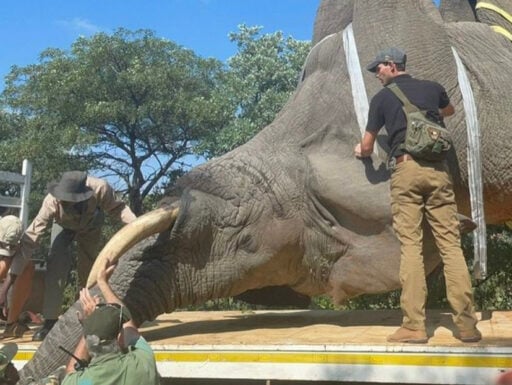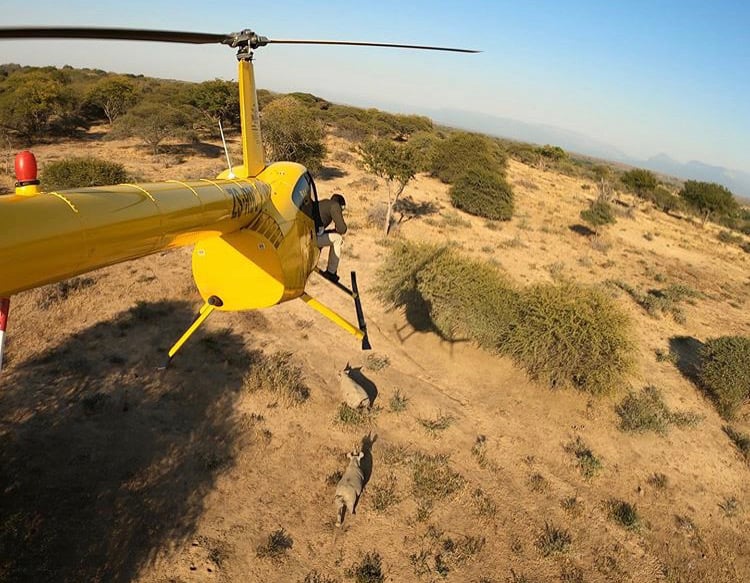
Gain professional expertise while you use your skills to help the mission to save rhinos in South Africa.
Join us in a field training project to dehorn up to 30 white rhinos and critically endangered black rhinos in a special, once-in-a-lifetime mission to protect these animals from relentless poaching attacks for their horns.
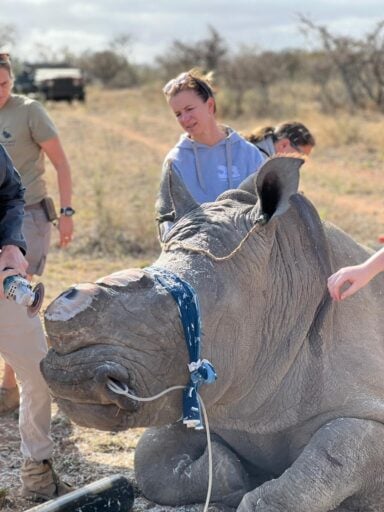
If you do not fit in one of these categories but have significant work experience in conservation or animal welfare and feel that this is the project for you, please contact Dr. Chloe Buiting at [email protected]. We cannot at this time make exceptions for undergraduate students or for vet students who are not in their clinical year.
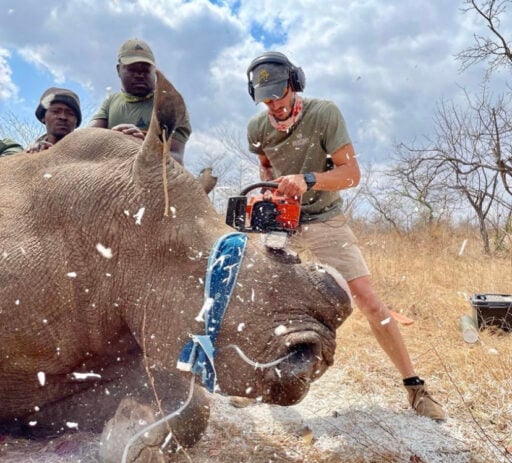
• May 1 – 7, 2023
NOTE: Similar programs including dehorning and elephant collaring will be available July 16 – 23, 2023 and July 23 – 30, 2023. If you’d like to pre-deposit for one of those program dates, please contact [email protected].
$4,950 USD per person not including international airfare. Your program fee pays for all the supplies, personnel, and other costs necessary to carry out this dehorning mission – thank you!
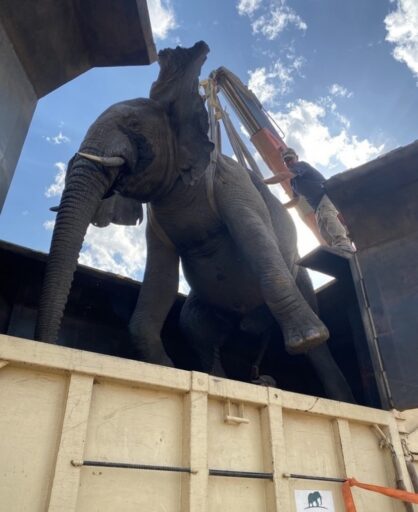
Program fee does not include:
Please note: This is a field project that takes place in a rustic area of South Africa. Housing is limited. Participants will be housed with other participants of the same gender in rooms of three beds; single supplements are not available. If you are enrolling with a friend or partner and would like to room together, please advise and we will do our best to accommodate.
No discounts are available for or applicable to this program.
All participants will need to be vaccinated against COVID-19. All participants will adhere to the Loop Abroad COVID policy which includes providing a negative COVID test within 2-3 days prior to travel. If a program is canceled by Loop Abroad due to COVID-19, we offer a full refund of all tuition paid, including the deposit.
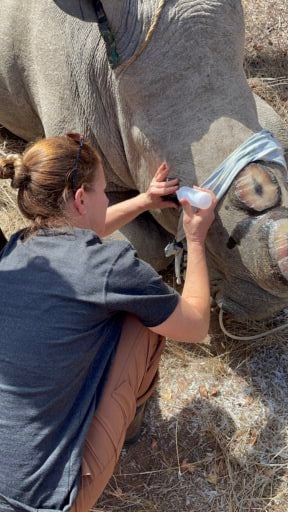
Veterinarians, vet techs, veterinary nurses, and clinical year vet students may directly enroll. Others interested in participating may email [email protected]. We cannot admit undergraduate students or vet students who are not in their clinical year to this program.
Please note that this is an active, outdoor program that requires participants to be able to walk outdoors, get safely in and out of vehicles, and be safely able to participate in working with animals outdoors for a full day.
Program Airport: Hoedspruit Airport
Accommodation:
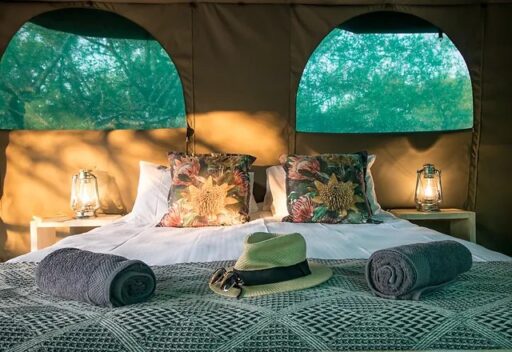
Room description:
Each chalet can host 2 – 3 people, which you will be sharing with a participant of the same gender. You may request specific roommates if traveling together. Bed sizes vary from twin bed to king bed and will be randomly assigned.
The chalets are all equipped with electricity. Central shared facilities include hot showers, toilets, kitchen and dining area, and a small swimming pool.
NB: All participants must be fully vaccinated against COVID-19, and will be asked to provide a negative COVID test before arrival.
Project Itinerary
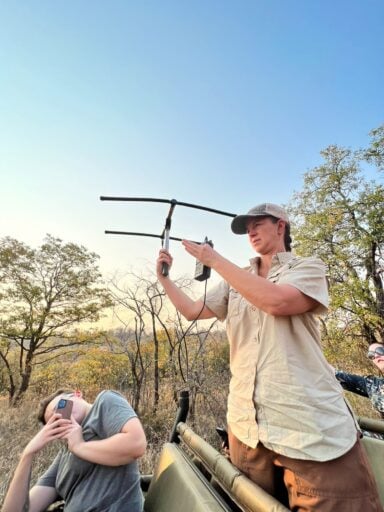
You’ll receive training in darting practicals, including an opportunity for you to practice from the helicopter.
Your participation will not only provide you with intensive hands-on experience, but you will also learn first-hand techniques in darting, immobilization, capture, anesthesia monitoring, dehorning and other topics related to rhino medicine and conservation – all in the heartland of African wildlife conservation.
In our theoretical classes, we will also explore the complex topics around poaching, including what factors are driving the demand for rhino horn and the challenges we face in addressing and controlling these. We will also examine the current projects involved in the protection of the species – including ways in which you can become involved yourself.
Program Itinerary
| Date | Activity |
| May 1, 2023 | Arrival and transport to Reserve Welcome dinner |
| May 2, 2023 | Dehorning project |
| May 3, 2023 | Dehorning project |
| May 4, 2023 | Dehorning project |
| May 5, 2023 | Dehorning project |
| May 6, 2023 | Helicopter Darting Game Drive/Safari |
| May 7, 2023 | Transfer to airport Departure |
| Exact itinerary subject to change. |
Lecture series:
